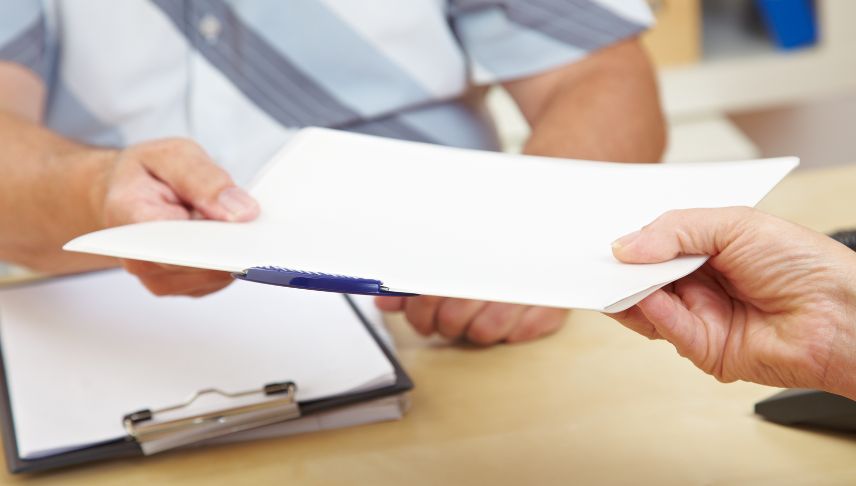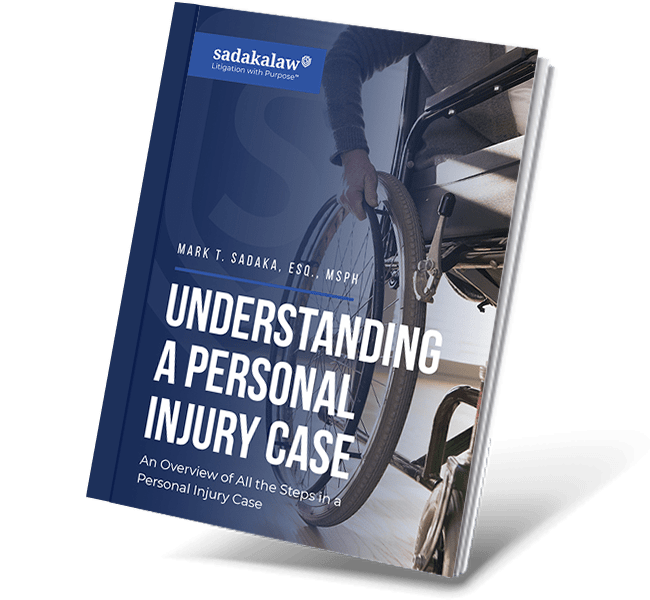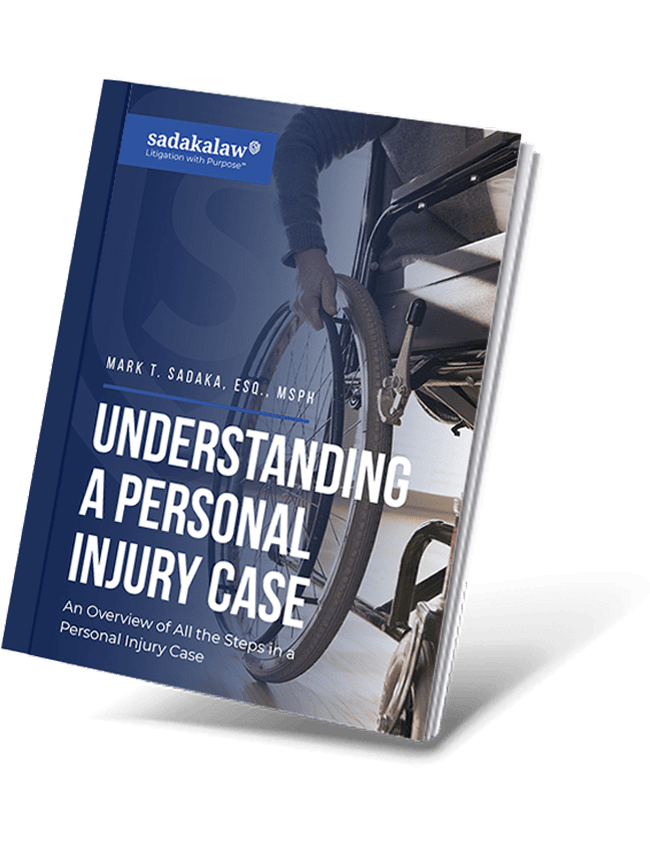What steps can improve your chances of winning a personal injury claim in New Jersey?
Boost your claim by seeking immediate medical attention, meticulously documenting injuries and accident details, gathering witness statements, and partnering with an experienced New Jersey personal injury lawyer for expert guidance.
If you’ve suffered an injury due to someone else’s negligence, you could have the right to file a personal injury case against the negligent party. You’re probably wondering whether to file a lawsuit or just an insurance claim and how to win your personal injury claim if you end up filing a lawsuit in court.
Insurance companies often try to devalue injury claims. Proving negligence in a personal injury case can be challenging, requiring years of experience in personal injury law. Your injury attorney can help your case by gathering the appropriate evidence to help maximize your compensation in a settlement or jury award.
Understanding Negligence
Many people use negligence and liability interchangeably, but the terms, although related concepts, describe two different legal definitions. A liable party is a party that may share legal responsibility for your injuries in an incident.
For example, in a car accident, liable parties could include the other driver, a car or car part manufacturer, or a government entity responsible for maintaining the roads. Depending on the circumstances of the accident, you may be able to pursue multiple liable parties for their share of negligence in contributing to your accident.
Negligence contains four parts that you and your attorney must prove in your case. The four parts of negligence are as follows:
- The defendant owed the plaintiff a duty of care
- The defendant breached their duty
- The plaintiff suffered injuries and losses as a result of an accident
- The defendant’s actions directly contributed to the accident and the plaintiff’s losses
In a car accident caused by a driver failing to merge in time for road construction, the driver and the road construction contractor may share liability. However, the driver may be the only negligent party if the road workers had appropriate signage, barricades, and permits. For example, the driver may have been distracted or was driving under the influence.
Evidence Documentation

If you’re wondering how to win your personal injury claim by proving negligence, you should know that you bear the burden of proof as the plaintiff. You must prove negligence “with a preponderance of the evidence.”
Your attorney will request evidence from multiple sources to support your claim, including the following:
- Medical bills
- Medical records from before and after the accident
- The police report of the incident
- Footage from nearby security cameras of local businesses
- Contacting expert witnesses like medical professionals or accident recreation engineers to give expert testimony about injuries or accident events
- Finding other witnesses to give testimony
- Paystubs from before your accident
- Photos and video from the accident scene
- Historical documentation of similar accidents at that location
Some evidence will support your claim against the defendant for negligence. Other parts of your evidence will prove your losses. Your medical expenses, travel expenses for medical treatment, and paystubs from before your accident will help prove the value of your claim in medical costs and lost wages from time away from work due to your injuries.
Your attorney may also present some of the evidence to expert witnesses. For example, your medical records from before the accident might show that you had never broken an arm before, while X-rays and other imaging might show a compound fracture of your arm immediately after the accident. An expert witness orthopedic doctor might be able to describe how a break like yours could occur in an accident, as well as possible complications and how they might affect your quality of life.
Witness Testimony
Witnesses don’t have to stay at the scene of an accident. If you are able to collect witness contact information after an accident, they could provide a statement later for the police report. Be sure to give the police the witness contact information you collected when they arrive to take your statement. Also, keep copies of that information to give to your attorney.
Medical Treatment
Seeking medical treatment immediately after an accident is essential for your case. An insurance company adjuster will wonder why you waited to see a doctor if you suffered injuries in your accident and could use any time you wait to visit a medical clinic or doctor as evidence against your claim.
New Jersey is a no-fault insurance claim state for car accidents. If you were in a car accident, inform your insurance company that you intend to visit a doctor for an examination after reporting the accident. Even if you don’t feel pain immediately after an accident, getting X-rays and an MRI within 24 hours can help you identify injuries and get evidence for a claim.
When you contact your insurer to inform them of the accident, do not mention anything about your condition. Simply state that you have not yet been seen by a professional but intend to get a professional medical evaluation.
Honesty and Integrity

One key factor in how to win your personal injury claim is to be sure that your statement remains the same throughout your case, even when asked questions that try to indicate another scenario. Insurance adjusters and attorneys often ask guiding questions during claim investigations and depositions. Describing the accident events truthfully every time is essential for your case.
Even remembering something that happened during the accident later could have a bearing on whether the insurance company representatives feel they can offer a lowball settlement for your injuries. If you remember additional details about your accident after you’ve made a statement to the police or your insurance company, contact your attorney to help you amend your statement appropriately.
Social Media Considerations
Public posts about your accident on social media can harm your claim. Pictures of your vehicle or injuries after a car accident, statements about injuries only being minor, or jokes about getting paid from a claim can all be useful for the insurance company fighting against your claim in court.
Making statements about the impact of the accident on social media can provide the insurance company with evidence that you could be embellishing statements to pursue a higher settlement than is fair for your injuries. Discrepancies between your social media posts and official statements and evidence may negatively impact your case.
Know Your Rights
New Jersey and New York are both “no-fault” insurance states in a car accident, meaning you file your initial insurance claim for your injuries through your personal injury protection (PIP) policy. Your insurance company will then seek reimbursement from the at-fault driver’s insurance company. No-fault insurance claim states help victims seek immediate payment for medical bills and other expenses after an accident.
If your insurance coverage doesn’t cover your injuries in New Jersey, you may file a lawsuit against the other driver to seek compensation from their insurance company. New York enforces a “serious injury threshold” before a victim can sue for injuries in an accident. Serious injuries in New York include:
- Death
- Dismemberment
- Significant disfigurement
- Bone fracture
- Loss of a fetus
- Permanent loss or limitation of use of a body organ, member, function, or system
- Temporary injury that restricts typical daily activities for at least 90 of the 180 days following the accident
You have the right to seek compensation for your injuries after an accident caused by someone else’s negligence. Compensation typically comes from an insurance settlement but sometimes requires filing a lawsuit against the negligent party.
After an accident, you should consult an experienced attorney as soon as possible to represent your interests with the insurance company, even if you file a claim through your policy. Having experienced legal representation for your claim can help you reach a fair settlement before the need for a lawsuit arises.
Lawyer Selection
![]()
Your attorney can help you pursue compensation for any of several injuries, including the following:
- Car accident
- Construction accident
- Truck accident
- Pedestrian accident
- Motorcycle accident
- Slip and fall
- Train accident
- Bus accident
- Boat accident
- Dog bite
- Bicycle accident
- Traumatic brain injury
- Spinal cord injury
- Wrongful death
Finding an experienced personal injury attorney with knowledge of your accident type can greatly improve your chances of settling or winning your claim in court. However, having an attorney on your side early in your claim process can help you gather the evidence to maximize compensation while filing all necessary documents within the statute of limitations.
Patience and Trust
Personal injury cases often take months or even years to settle or go through court proceedings. Having patience with the understanding that your attorney is fighting for your claim against the defense’s insurance company and their legal team is key to getting a fair settlement or award.
The insurance company might offer several settlement options over the course of the process. Your attorney can help you determine whether an offer to settle will cover your current and future losses. While a settlement offer might cover your medical bills and lost wages, does it also cover diminished earning capacity for your future earnings?
Calculating fair compensation for your injuries, losses, and physical and emotional trauma is one reason having a skilled attorney for your claim is essential to your case. Many people don’t realize the full value of their claim and may accept a settlement for less than their claim is worth.
Maximizing Compensation

Compensation in a personal injury claim usually includes economic and non-economic damages. Damages involve compensation for losses caused by a negligent party to a victim to make them whole for the losses incurred.
Economic damages cover tangible losses suffered by a victim, including:
- Medical expenses
- Travel expenses to receive treatment
- Lost wages from time off of work
- Diminished future earning capacity
- Childcare expenses during treatment
- Ongoing physical therapy or occupational rehabilitation costs
- Household expenses for services once performed (lawn care, house cleaning, etc.)
Non-economic damages cover intangible losses, such as stress, anguish, and anxiety. Most attorneys and court systems will use a multiplier of one to five to calculate non-economic damages according to severity. To determine non-economic damages, they will multiply the economic damages by the multiplier to arrive at the final non-economic damages award. Non-economic damages may include the following:
- Pain and suffering
- Anxiety or depression caused by the accident or injuries
- Mental anguish
- Emotional distress
- Diminished quality of life
- Loss of consortium or companionship in wrongful death cases
- Post-traumatic stress disorder (PTSD)
The court may also award punitive damages in cases where the defendant’s actions were particularly reckless, wanton, intentional, or oppressive. These are additional damages meant to punish the defendant and deter similar behavior.
Contact Sadaka Law for a Personal Injury Case in New Jersey
If you’re wondering how to win your personal injury claim, these tips are a good place to start. For more information about personal injury law in New Jersey and New York, contact our experienced team at Sadaka Law. Call us today at (800) 810-3457 or contact us online to schedule a consultation.


